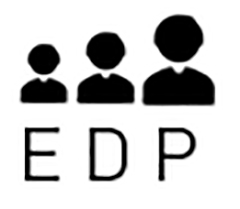Epidemiological Developmental Psychology (EDP)
The EDP group focuses on interdisciplinary research in public health and psychology, and holds a special interest in the ways in which psychology and health sciences are entangled and are impacted by social and environmental conditions from fetal life over childhood and adolescence to adulthood. We thus uncover how factors in early life affect health and psychological development and investigate potential predictors of positive as well as suboptimal psychological outcomes and even psychiatric outcomes over the life course. Main areas of research are:
- The influence of early life factors for individual differences later in life, including personality, intelligence, neuroplasticity and psychiatric disorders
- Milestone development in the first years of life
- Predictors and consequences of cognitive development and cognitive ageing
- Predictors and consequences of personality development
Vision
In the group, all research is carried out with the following vision in mind:
To better understand how factors in early life affect the psychological and neural development of children and how this affects outcomes in adulthood. The mission is to bring together excellent researchers with complementary expertise to investigate factors that potentially impact development and thus create a strong empirical foundation for guidelines for parents and institutions. The purpose is to facilitate children in fulfilling their personal developmental potential.
In order to realize this vision, we work to achieve the following goals:
- Contribute with new knowledge about determinants of development in early childhood
- Contribute with new knowledge about how factors in the first years of life affect psychological outcomes over the life course
- Sustain and develop the unique integration of epidemiology, developmental psychology and public health
Research approach
We work epidemiologically with psychological data on developmental aspects. Thus, we exploit the unique opportunities in Denmark to combine data from large cohorts with national administrative data and health data from the Danish registries. We also conduct data collections to establish cohorts containing more in-depth information collected through surveys and psychological testing. Additionally, we endeavour to test our findings experimentally in models of the impact of early life factors on neural and behavioral development with special emphasis on psychiatric disorders.
By this, we connect the disciplines of epidemiology, public health, psychiatry and developmental psychology, which creates opportunities to conduct studies that are unique in quantity and quality, both nationally and internationally.
Research group leader: Trine Flensborg-Madsen
Researchers:
Cathrine Lawaetz Wimmelmann
Erik Lykke Mortensen
Gitta Wörtwein
Gunhild Tidemann Okholm
Hans Henrik Jensen
Kristine Hell
Trine Flensborg-Madsen

